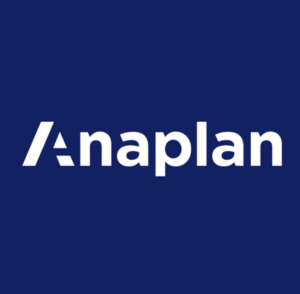5 Proven Marketing Strategies for Home Energy Auditors: Amplify Business Growth

5 Proven Marketing Strategies for Home Energy Auditors: Amplify Business Growth
In today’s competitive market, standing out as a home energy auditor isn’t always easy. It’s not just about having the technical skills and knowledge; it’s also about effectively marketing your services to attract and retain clients.
With the growing interest in energy efficiency, there’s a significant opportunity for auditors who know how to promote their business. Whether you’re just starting out or looking to expand, here are five marketing tips that can help you get more business.
Remember, marketing is an investment. It’s not just about spending money, but about spending it wisely to reach your target audience and convert them into loyal customers. So, let’s dive in and explore these tips to boost your business.
Identify Your Target Audience
Identifying the target audience is a crucial first step in creating an effective marketing strategy for any home energy auditor. It’s this specific group of people that an auditor’s services would most benefit. These can be homeowners interested in energy efficiency, property developers keen on maximising energy savings, or even businesses looking to decrease their carbon footprint.
Understanding the potential clients’ needs and wants provides a roadmap which guides the creation and implementation of marketing efforts.
To narrow down the target audience, home energy auditors should consider aspects like:
- Geographic location: Knowing where potential clients are located helps focus marketing resources.
- Demographics: Parameters like age, income, education levels are profound determinants of who might use their services.
- Behavioral traits: Identifying any common energy needs, habits, or challenges amongst potential clients helps tailor offers to their specific needs.
One method that energy auditors can employ is segmentation. This involves dividing a market into distinct groups who exhibit similar characteristics or express similar needs or desires. With this approach, auditors can then tailor their promotional messaging and marketing strategies to suit each segment effectively.
For instance, a message about reducing environmental impact might appeal to a younger, environmentally-conscious segment, while a message about cost savings might hit home with an older, budget-conscious segment.
Furthermore, it’s equally important for auditors not just to identify who their target audience is but to understand them. Waving the magic wand of marketing will not help unless the messaging speaks to the heart of the audience. By doing this, home energy auditors can ensure that not only do they attract potential customers, but retain them in the long run. It hence, becomes an investment towards forging a long-term relationship that’s fruitful and equally rewarding.
Develop a Strong Brand Identity
Once the energy auditor has identified their target market, the next part of their pottery wheel is to develop a powerful brand identity. This isn’t just about a memorable logo or clever tagline. The brand identity encompasses everything from how they interact with clients to the value they promise to deliver. The brand isn’t what auditors say it is. It’s what the market perceives it to be.
The energy auditor’s brand identity can significantly influence the perceptions of potential clients. If well developed and promoted, it can instill trust and show professionalism and quality. On the other hand, inconsistency in the brand identity can lead to confusion for potential clients while undermining the trustworthiness of the auditor.
Here are a couple of things auditors can do to develop a robust brand identity:
- Understand What Makes Your Service Unique: Before auditors can create a strong brand identity, they need to identify what separates their services from competitors. This could be their method of energy auditing, superior customer service, or use of advanced technology. By focusing on these distinguishing traits, auditors can create a brand identity that reflects their uniqueness in the sector.
- Define Your Brand Voice: The brand voice is how an auditor communicates with their audience. It’s a reflection of their business personality. Are they professional, friendly, or informative? Whichever tone auditors choose, it’s crucial to keep it consistent across all platforms, from their website to social media and marketing materials.
- Visual Consistency: This involves an auditor’s logo, color palette, and overall design. Once the visual elements are established, they should remain consistent on all mediums to promote brand recognition.
Overall, a strong brand identity is more than just the outward appearances, as important as those may be. It’s the auditor’s reputation, the public perception of their business, and it’s worth spending time to get it right.
Create an Engaging Website
The era of digitalization imposes an obligation on businesses to create engaging online platforms, and Home Energy Auditors are no exception. The importance of an engaging website can’t be overemphasized. Their website serves as the digital “face” of their business and can leave a long-lasting impression on potential customers.
A key element to an engaging website is consistent, high-quality content, which might include blog posts, service descriptions, client testimonials, or videos demonstrating a home audit. Even if the auditor is excellent at their job, if their website doesn’t accurately reflect this, they may struggle to win over customers.
The website must be responsive, meaning, it should work seamlessly on all devices: desktop, tablet, or smartphone. More than half of global web traffic comes from mobile devices. As such, a website not optimized for mobile use could mean losing potential leads.
Website visitors tend to make a judgment about a site in just 50 milliseconds. Thus, site aesthetics shouldn’t be ignored. Modern design principles and layout, clean appearance, and appealing visuals are all important in creating an engaging experience that keeps visitors on the site.
In addition to aesthetics, user experience and functionality are equally important. Visitors should easily find what they’re seeking, be it service details, contact information, scheduling an appointment, or learning about energy audits.
Another important tactic is including relevant, accessible Call-To-Actions (CTAs). These could include scheduling a demo, requesting a quote, or downloading a free energy audit guide. CTAs provide a clear next step for visitors and may increase conversion rates.
To summarize, an engaging, aesthetically pleasing website that is packed with high-quality content and is easy to navigate can help Home Energy Auditors effectively reach their target audience and secure more business.
Utilize Search Engine Optimization (SEO) Techniques
Search Engine Optimization (SEO) is a proven tool that can increase visibility and maximize an auditor’s reach to the target audience. It’s a technique that utilizes relevant keywords and phrases, associated with home energy auditing, to improve the ranking of a website on search engine result pages (SERPs). High ranking on SERPs translates into more user traffic and subsequent business opportunities.
Home energy auditors should take advantage of Local SEO strategies. As their services are usually location-specific, it’s crucial to optimize their website and content to rank for local searches. This involves embedding the physical location of the business in keywords and meta descriptions. Techniques such as listing the auditing business in local directories and optimizing for ‘near me’ searches can significantly enhance local visibility.
Moreover, focusing on voice search optimization is a forward-thinking SEO strategy. With increasing adoption of voice-assisted devices, individuals are now using voice searches to avail services. Optimizing the website for long-tail keywords and natural language can help auditors rank better in voice searches.
A commitment to providing quality content is another winning SEO approach. Google’s algorithm prioritizes websites that consistently publish informative, relevant content. By crafting content that answers the questions or solves the problems of their target audience, auditors will attract organic traffic and increase their SERP rankings.
However, SEO is not a one-and-done task. It requires regular monitoring of website performance, updating old content, and continuous optimization to keep pace with Google’s ever-changing algorithms. Utilizing tools like Google Analytics allows auditors to track their SEO efforts, monitor website traffic, and make data-driven decisions.
From a branding perspective, well-executed SEO techniques can boost the auditor’s credibility and establish them as a thought leader in their field. Ultimately, a robust online presence can lead to increased leads and more business.
Build Relationships with Local Contractors and Homeowners
A key factor in bolstering business for home energy auditors is not solely reliant on excellent online visibility; it’s about building relationships within the community. Establishing connections with local contractors and homeowners is an effective method to position the auditor’s services within the local market. These relationships can create opportunities for direct client referrals, improving market presence and credibility.
Cultivating a connection with local contractors can be especially beneficial. As they may work on projects that require energy auditing, a strong relationship can ensure a steady stream of business. They can refer clients who need energy audits for their homes, or tie in the auditor’s services with their offerings. Targeting building contractors, renovation companies, and HVAC service providers could lead to promising, fruitful partnerships.
Forming relationships with homeowners is equally critical. Attend local meetings, participate in community projects, or sponsor local events to become a familiar face within the community. Regular interactions can expose the auditor’s services to potential clients, driving home the importance of energy audits. Homeowners who understand the value of energy auditing are more likely to utilize these services and share this knowledge within their circles creating a possible domino effect of referrals. Additionally, a strong community presence can create a strong local reputation, which could significantly aid in potential clients’ decision-making processes.
Using email marketing can be another vital tool for keeping in touch with contractors and homeowners in a non-invasive manner. Regular newsletters that provide updates, tips, and industry news can keep the auditor and their services on the radar of their contacts. Emailing reminders of the services offered and their benefits can reinforce the auditor’s presence, which ultimately contributes to a successful relationship-building strategy.
Considering the importance of establishing local relationships, it’s clear that home energy auditor should prioritize networking. They should consider these strategies part of their larger marketing efforts, with the same level of attention given as to their digital marketing campaigns.
Conclusion
The road to successful marketing for home energy auditors isn’t a straight path, but a journey with multiple facets. It’s about knowing who they’re speaking to and ensuring their message resonates. By segmenting their audience and tailoring their strategies, they can hit the right notes. Building a strong brand identity isn’t just about aesthetics, but about instilling trust and professionalism. Their website isn’t just a digital business card, but a platform to engage, impress, and convert visitors. SEO isn’t just a technical tool, but a way to increase visibility and credibility. Networking isn’t just about making connections, but about building relationships that can lead to more business. Each marketing tip is a piece of a puzzle that, when put together, can lead to a successful marketing strategy for home energy auditors. It’s a continuous process of learning, adapting, and growing to achieve their business goals.
References:
Lucas Noah is a tech-savvy writer with a solid academic foundation, holding a Bachelor of Information Technology (BIT) degree. His expertise in the IT field has paved the way for a flourishing writing career, where he currently contributes to the online presence... Read more




